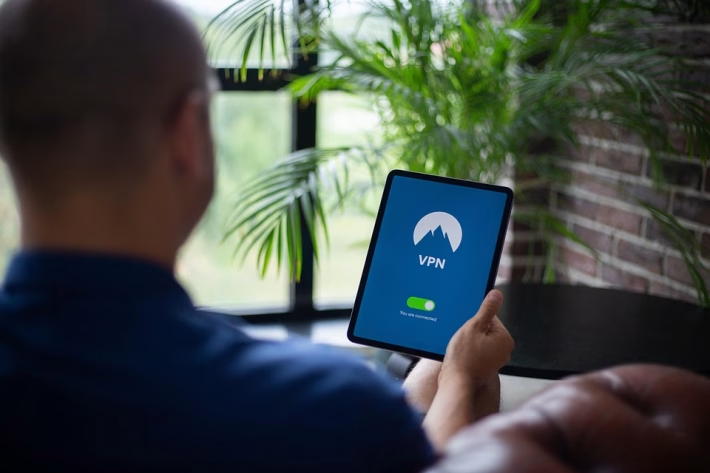Safeguard Your Devices: The Best Antivirus Software of 2025

Introduction – Why Security and Privacy Matter Today
In our interconnected world, the importance of security and privacy cannot be overstated. As we enter 2025, the digital landscape has transformed dramatically. With businesses and individuals increasingly reliant on technology, the risks associated with cyberattacks, data breaches, and identity theft have surged alarmingly. According to the Cybersecurity & Infrastructure Security Agency (CISA), the global cost of cybercrime is projected to reach a staggering $10.5 trillion annually by 2025. As such, prioritizing cybersecurity measures and tools is not just advisable—it’s imperative.
Not only do security breaches threaten sensitive information, but they can also damage reputations, erode trust, and lead to substantial financial losses. Consequently, understanding how to protect oneself while leveraging technology is essential for businesses and individuals alike.
Overview – The Risks Businesses and Individuals Face
Cyberattacks
Cyberattacks have evolved in complexity and frequency. From phishing scams that exploit user naivety to ransomware attacks that cripple entire organizations, the myriad forms of cyber threats make cybersecurity a paramount concern.
Data Leaks
Data leaks can occur due to negligent handling, third-party vulnerabilities, or outright malicious attacks. Information such as customer details, financial records, and employee data can be exposed, leading to severe repercussions.
Identity Theft
Identity theft remains a pernicious threat. Cybercriminals employ various tactics, such as social engineering and malware, to gain access to personal information. As a result, individuals find themselves victims of financial fraud, and businesses suffer reputational damage.
Best Tools – Recommended Software for Enhanced Security
1. Bitdefender Antivirus
- Features: Advanced threat defense, multi-layer ransomware protection, VPN.
- Pricing: Starting from $19.99/year for basic.
- Pros: Excellent malware detection rate, user-friendly interface.
- Cons: Some features require a paid account.
2. NordVPN
- Features: Military-grade encryption, no-logs policy, high-speed servers.
- Pricing: Starting at $59.00/year.
- Pros: Great for privacy, easy to use.
- Cons: Occasional slow server speeds.
3. LastPass
- Features: Password vault, password generator, one-click logins.
- Pricing: Free with premium options starting at $36/year.
- Pros: User-friendly interface, strong password generation.
- Cons: Premium version is necessary for advanced features.
4. Tresorit
- Features: End-to-end encryption, secure file sharing, zero-knowledge key management.
- Pricing: Starting at $12.50/user/month.
- Pros: Excellent for data privacy, based in Switzerland.
- Cons: Higher price point than comparable services.
5. Malwarebytes
- Features: Malware detection, ransomware protection, browser guard.
- Pricing: $39.99/year for premium.
- Pros: Fast scanning, easy to use.
- Cons: Limited against password theft.
6. ExpressVPN
- Features: Secure encryption, no-logs policy, split tunneling.
- Pricing: $99.95/year.
- Pros: Strong security features, good customer support.
- Cons: More expensive than competitors.
7. Keeper Security
- Features: Secure password storage, multi-device support, dark web monitoring.
- Pricing: Starting at $29.99/year.
- Pros: Easy to use, excellent customer feedback.
- Cons: Limited free version features.
8. Kaspersky Security Cloud
- Features: Adaptive security, antivirus, VPN combo.
- Pricing: Starting at $39.99/year.
- Pros: Comprehensive protection, excellent malware detection.
- Cons: Some features require additional purchases.
9. Avast Free Antivirus
- Features: Basic malware protection, network security scanner.
- Pricing: Free with premium options available.
- Pros: Good basic protection, user-friendly.
- Cons: Advertisements for premium features.
10. Acronis True Image (Secure Cloud Storage)
- Features: Backup solutions, ransomware protection, file sharing.
- Pricing: Starting at $49.99/year.
- Pros: Comprehensive backup and restore features.
- Cons: Can be complex for beginners.
Best Practices – Step-by-Step Methods to Improve Security and Privacy
-
Use Strong, Unique Passwords:
- Utilize a password manager like LastPass to generate and store complex passwords for your online accounts.
-
Enable Two-Factor Authentication (2FA):
- Activate 2FA on all critical accounts to add an extra layer of security.
-
Regular Software Updates:
- Ensure that all software, including operating systems and applications, are updated regularly to protect against vulnerabilities.
-
Educate Yourself and Employees:
- Conduct training sessions on recognizing phishing emails and cybersecurity best practices.
-
Utilize VPNs:
- Use a reputable VPN service like NordVPN when accessing public Wi-Fi to protect your online activity.
-
Backup Data:
- Implement scheduled backups using Acronis True Image to safeguard data against ransomware or data loss.
-
Review Privacy Settings:
- Regularly check and adjust privacy settings on social media and other platforms to limit data exposure.
- Monitor Financial Statements:
- Keep an eye on bank statements for unusual activity, indicating possible identity theft.
Industry Trends – Insights into Current or Upcoming Cybersecurity Trends in 2025
Rise of Artificial Intelligence
In 2025, artificial intelligence is playing a crucial role in cybersecurity. AI-driven tools are being deployed for predictive analysis, threat detection, and automated responses, revolutionizing how organizations defend against cyber threats.
Increased Regulation
With rising concerns about privacy, regulatory frameworks such as GDPR are becoming more stringent globally. Businesses must now prioritize compliance, leading to a push for more robust data protection measures.
The Move to Zero Trust Architecture
Zero Trust architecture is gaining traction, emphasizing the principle of "never trust, always verify." This approach enhances security protocols for businesses by continuously validating all users and devices attempting to access systems.
Case Studies / Examples – Real-World Security Breaches and Lessons Learned
Example 1: Equifax Data Breach (2017)
In one of the most infamous data breaches, Equifax exposed the personal information of over 147 million individuals. The breach occurred due to unpatched vulnerabilities. Lesson: Regularly update software and conduct security assessments.
Example 2: Colonial Pipeline Ransomware Attack (2021)
This attack resulted in fuel shortages across the eastern United States. The company paid $4.4 million to regain access. Lesson: Implementing proper incident response plans can mitigate damage and financial loss.
Comparisons – How Leading Tools Differ in Protection, Pricing, and Usability
While many cybersecurity tools offer similar functionality, understanding their unique attributes can aid in selecting the right fit. For instance, comparing Bitdefender and Kaspersky, both excel in malware protection but differ significantly in user experience and pricing. Similarly, NordVPN stands out for its privacy features, whereas ExpressVPN emphasizes speed.
| Tool | Protection Level | Price (Annual) | Usability |
|---|---|---|---|
| Bitdefender | Excellent | $19.99 | User-Friendly |
| Kaspersky | Excellent | $39.99 | Moderate |
| NordVPN | Excellent | $59.00 | User-Friendly |
| LastPass | Good | $36.00 | Very User-Friendly |
| Tresorit | Excellent | $12.50/user | Moderate |
Pros & Cons – Balanced Analysis for Readers to Make Informed Decisions
Antivirus Software
- Pros: Essential for malware protection, user-friendly, multiple features.
- Cons: Can slow system performance, some require annual subscriptions.
VPNs
- Pros: Enhance online privacy, secure data on public Wi-Fi.
- Cons: Potential speed reduction, varied pricing structures.
Password Managers
- Pros: Simplifies password management, improves password security.
- Cons: Reliant on internet connectivity, potential vulnerabilities if not secured.
Secure Cloud Storage
- Pros: Provides backup solutions, enhances data security.
- Cons: Possible subscription fees, reliance on service provider’s security.
FAQs
What is the best antivirus software for 2025?
While the best antivirus software varies by use case, Bitdefender and Kaspersky consistently rank among the top choices for their exceptional protection rates.
Which VPN is safest?
NordVPN and ExpressVPN are leading choices for safe browsing, offering strong encryption and robust privacy policies.
How to secure business data?
Implement strong access controls, regularly update software, utilize encryption, and conduct employee training on cybersecurity best practices.
What are the benefits of using a password manager?
Password managers like LastPass enhance security through strong, unique password generation and storage, simplifying the login process.
How often should I backup my data?
For critical business data, it’s advisable to schedule daily backups, while personal data backups can be performed weekly or monthly.
Conclusion – Final Thoughts with Practical Advice and Clear Recommendations
In summary, cybersecurity remains a top priority in 2025 as threats become more sophisticated. Implementing the right tools, such as the best antivirus software like Bitdefender or top VPNs for privacy like NordVPN, can significantly enhance security and privacy. Moreover, adopting best practices, understanding industry trends, and learning from real-world breaches can equip individuals and businesses to better protect their digital lives.
As we navigate this evolving landscape, remember that the responsibility of cybersecurity is shared—it takes concerted effort from everyone to preserve our digital domains. Armed with knowledge, the right tools, and proactive measures, you can secure your data against future threats. Prioritize cybersecurity today for a safer digital tomorrow.
🚀 Try Ancoia for FREE today and experience the power of business automation!
🔗 Sign up now and get a 7-day free trial



